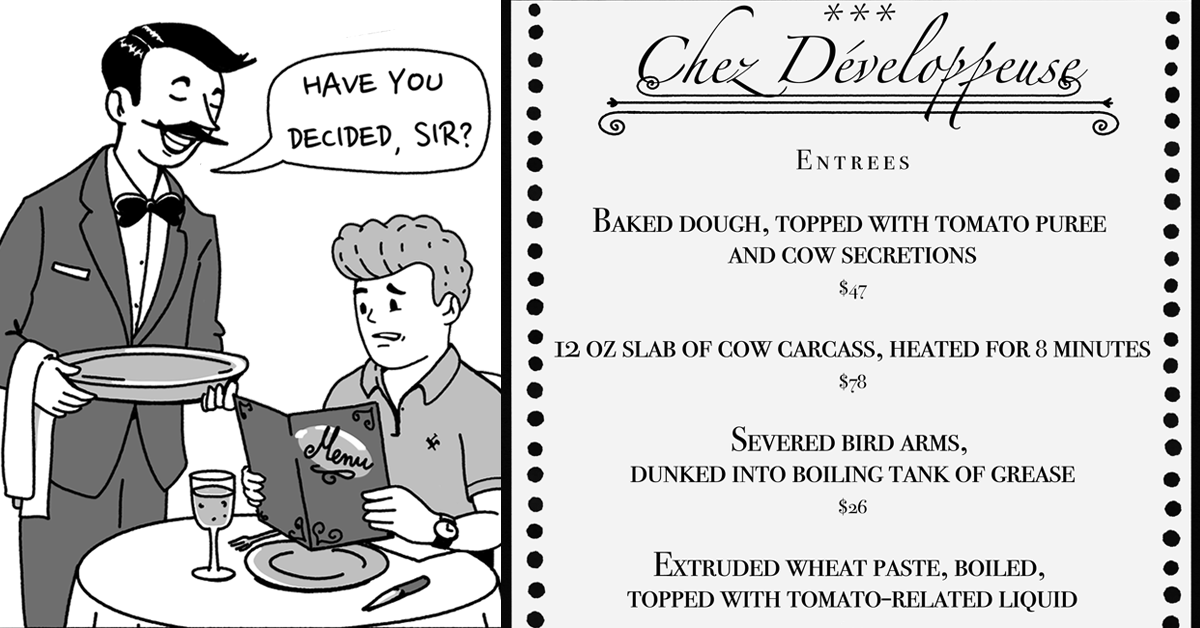I teach a course, “The Modern and the Postmodern.” It’s not really about conservatism, but I have added conservative critiques of some of the modernists that I talk about. I teach a course on virtue and vice in history, philosophy, and literature, and I have added conservative critiques of the liberal assumptions that almost all my students share. And it’s interesting to see how they react—they’re shocked by these critiques, in ways they’re not shocked by, I don’t know, Bolshevism or violent anti-colonial revolutionary rhetoric. And I point that out. So we talk, and they’re perfectly able to deal with it. I’m not trying to convince them that these guys are right or anything; just that it’s interesting to think about.
We have to be less insular, less parochial, and being politically more diverse is part of that. Also, at the fancy places—like Wesleyan and Ivy League schools and others, a small percentage of schools in the country—I do think it would not be unfair to say we’ve bred a kind of condescension. When you define the quality of your institution by how many people you reject, you can create—unintentionally—an attitude of “I’ve earned my superiority.”
Trump and his allies have found a way to tar all of the sector with the brush of the Ivy League. They’re excellent schools, and they have excellent scientists, and if one of Vice-President Vance’s kids is sick, he’s going to want the doctor to have gone to one of these schools; he’s not going to want them to have gone to Viktor Orbán’s university. But higher education serves so many more people in so many different ways than the places that are highly selective.
What do you make of the fact that the conflict over Israel and Palestine has become the pretext for the current crackdown?
I think anti-antisemitism is a very useful tool for the right. Many others have noted how comfortable these same people who are cracking down on antisemitism are with Nazis—real, frighteningly confident antisemites. But it’s a useful tool, because so many people in the liberal-to-progressive, educated coalition are divided about it, and it’s generational.
Anti-antisemitism can be appropriated by any political movement. They can use that as a vehicle for persecuting researchers and institutions that are not aligned with the ideology of the person in charge. It’s to show that you control them.
You have prominent Jewish figures around the country who get comfortable with Trump, it seems to me, because they can say he’s fighting antisemitism: “He’s good for the Jews.” It’s pathetic. It’s a travesty of Jewish values, in my view.
Over the last couple of months, many leaders of colleges and universities haven’t spoken out against the Trump Administration’s attack on higher education. You’ve been pretty vocal. What do you think has made that possible?
I have, for many years, spoken my mind in ways that are clearly fallible. I’ve had to apologize. My communications office, when I said I wanted to do blogging, thought it was a bad idea. I think it’s important to participate. And then to say, “Oh, shit, I made a mistake.” “Oh, I shouldn’t have said that.” “Yes, I should say this.” It’s not perfect—no conversation is.
I think my job as a leader of the university is to speak up for the values that we claim to believe in, especially when they’re at odds with people with enormous power. So I think I’m speaking now because I’ve been speaking.
My board is very supportive. My board teases me that I threaten to quit a lot. I don’t think I do, but they say I do, so they’re probably right. In November, after the election, I said, “If you want a president who’s not going to speak up, you have to find another president.” One of my friends on the board said, “Why did you do that? You don’t have to threaten to quit. Everybody wants you to stay.” I said, “I didn’t threaten to quit! It’s just a fact!” I’m more combative than I want to be, and I’m not looking for a fight, but I do feel that when people are getting really pushed around, in horrible ways, that someone who is at a university and has a platform and can call an editor—we should try.
I actually thought other people would speak out. Because the missions are at stake. Even the Kalven people—when the mission’s at stake, you’re supposed to speak out.
Someone on the faculty at Columbia who works in the administration asked me to put together a group of presidents. I was unable to. I wrote something quickly for people to sign, and one of the people I contacted said to me, “Are you sure the president at Columbia wants you to?” I said, “I’m not sure.”
Tell me about the kinds of conversations you’ve been having with fellow-presidents. What’s your sense of the internal debates they’re having?
Presidents—we’re not usually honest with each other. It’s just the nature of the job. You’re always trying to put your institution in the best possible light. I always joke that I see a president I haven’t seen in a few years, and he used to have two arms and now only has one —“What the hell happened, Charlie?” “Oh, I hated that arm! I feel so much freer!”
I don’t go to a lot of presidential gatherings, but I go to a couple. I was at one, and this guy came to me and said, “You know, you make me feel like a coward.” I said, “I’m sorry, that’s not really what my intention is.” But he said he’s at a public university—he was going to the state legislature two days later. He said, “They’re not going to let me have any diversity stuff in the university.” I said, “Well, you can quit.” He said, “And what good would that do?” So, I’m lucky—I have a board that likes the work we do. I have an incredible team of vice-presidents and a wonderful faculty, and they’re supportive. But I don’t understand. Because I know some presidents—many of them are a lot smarter than I am. I’m sure they can write well. I don’t understand.









 English (US) ·
English (US) ·